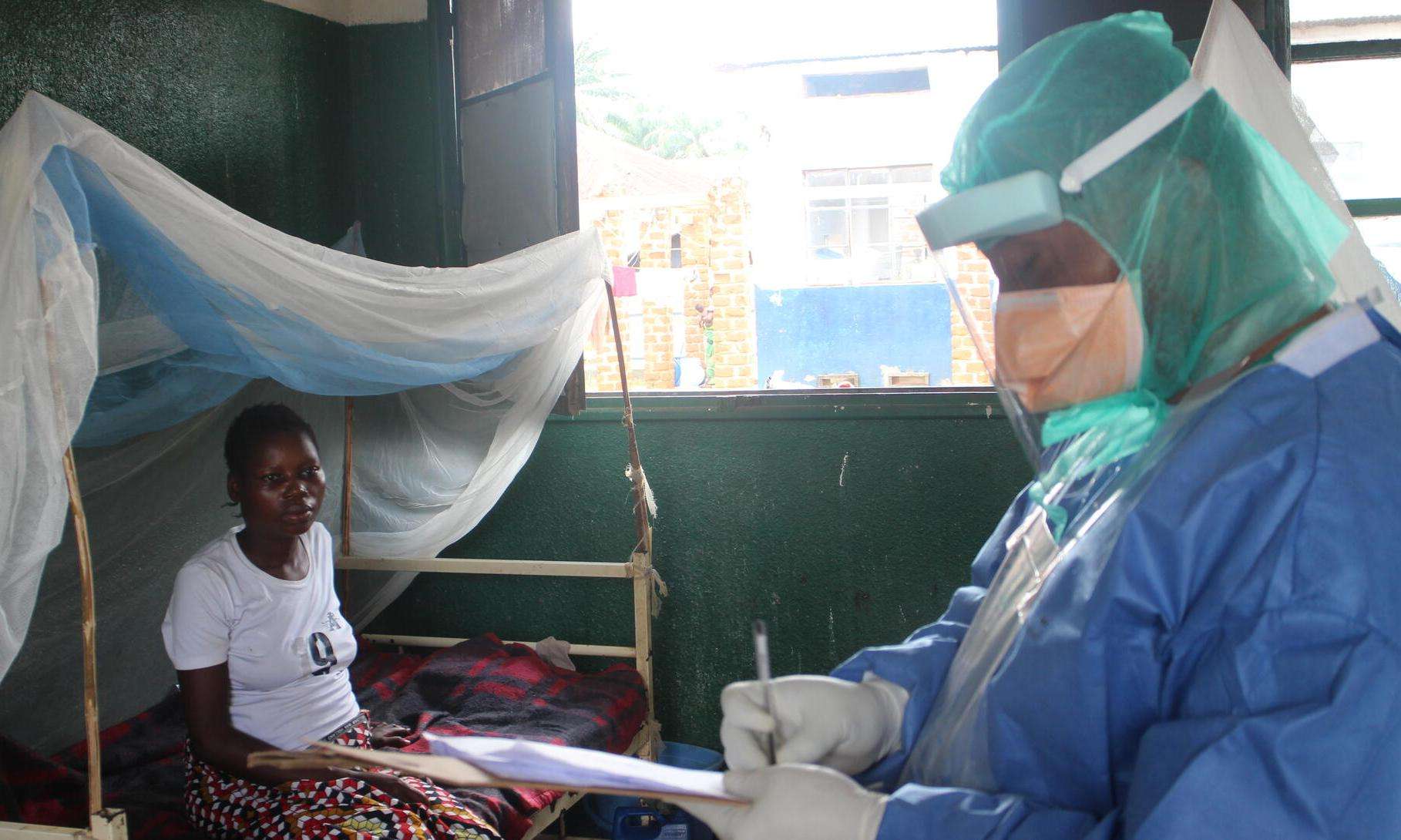In Equateur, a western province in Democratic Republic of Congo (DRC), people in the Bolomba health zone have been affected by an outbreak of Mpox (previously known as monkeypox) over the past months. From the end of August to mid-October 2023, an MSF emergency team was on site to help health authorities treat patients and combat the spread of the disease.
Mpox is a contagious viral disease of animal origin that is endemic in about 10 countries in Central and West Africa. Characterized by rashes that can appear on the palms of the hands, soles of the feet, or in the mouth, Mpox can be accompanied by a fever, sore throat, muscle aches, skin lesions, or pain in the lymph nodes.
"If the disease is not treated in time, it can lead to complications and death in those affected, especially if their immune system is compromised by other diseases," said Raphaël Kibwantiaka, head of MSF's emergency response in the Bolomba health zone. “As Bolomba was already grappling with a measles epidemic, we intervened against both diseases.”
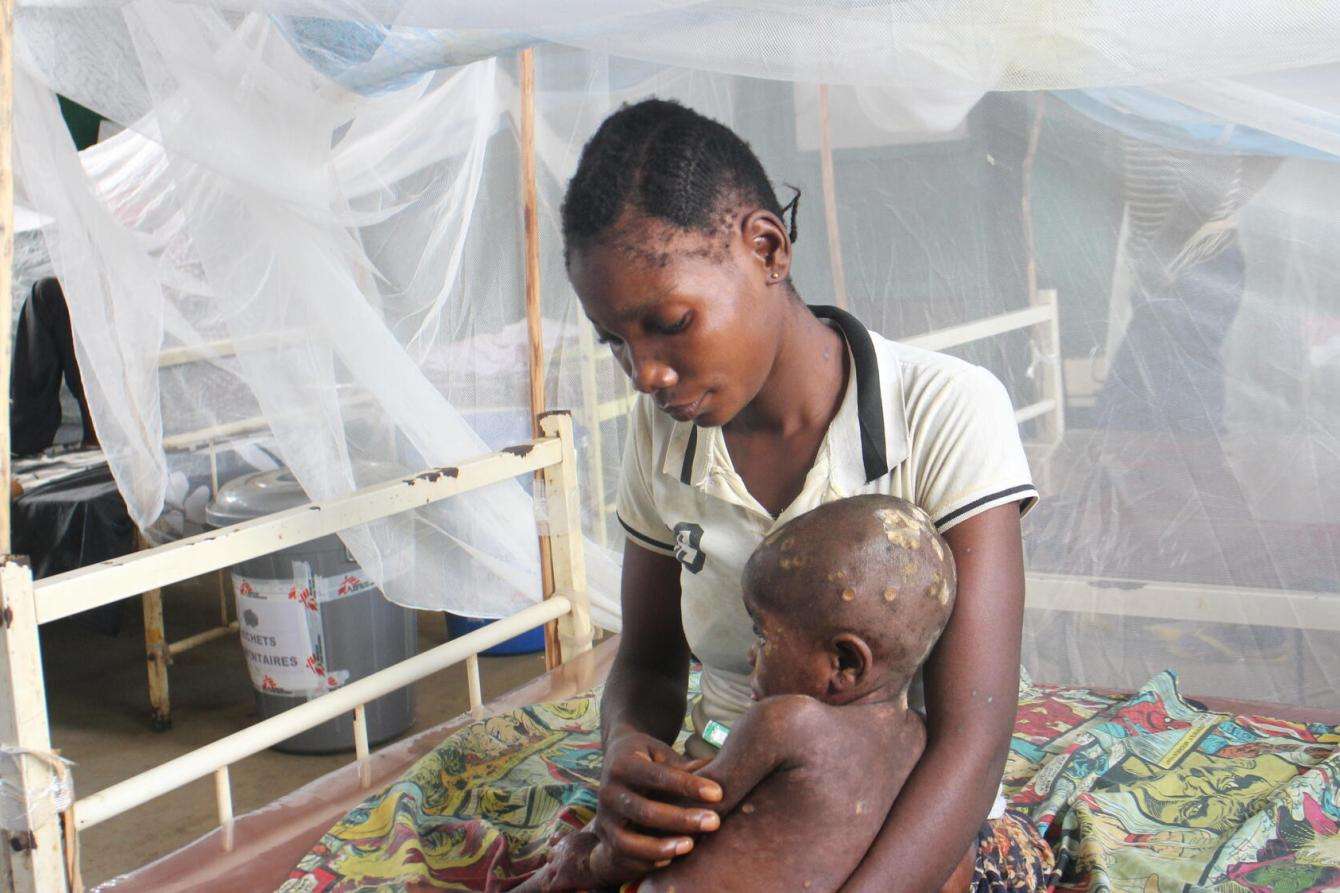
Bolomba: A natural setting for Mpox
Bolomba is a densely wooded area rich in animal life that is situated more than 300 kilometers (about 186 miles) from Mbandaka, the capital of Equateur province. It is isolated and difficult to access, with the population primarily relying on hunting and fishing for food. This natural environment is conducive to the development of diseases of animal origin, known as zoonoses, such as viral hemorrhagic fevers and Mpox.
"Eating bushmeat, handling dead animals, and animal bites or scratches encourage the transmission of the virus from animals to humans,” said Kibwantiaka. “Infected individuals then become highly contagious and need to isolate themselves quickly to prevent widespread transmission."
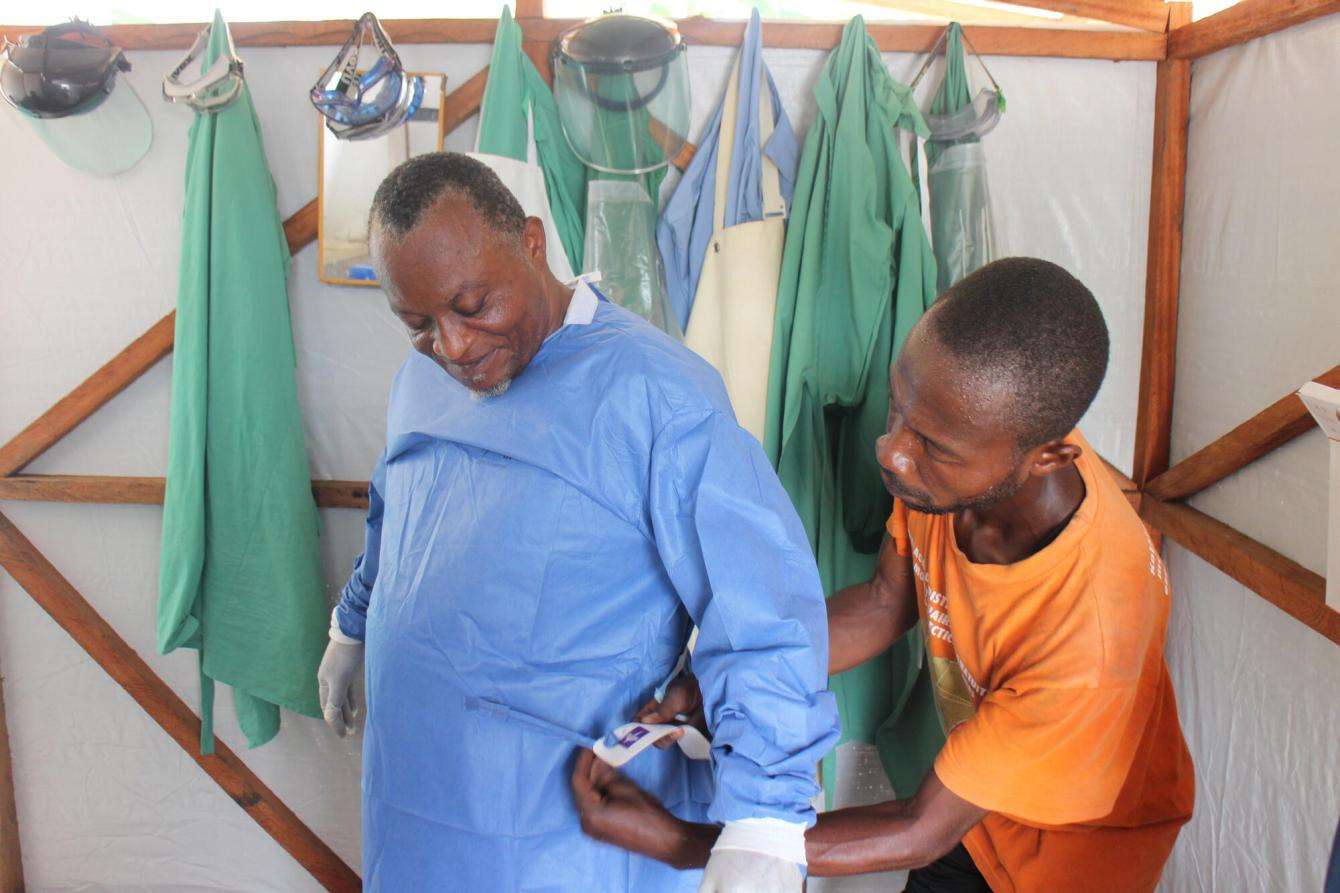
How MSF responded
From the end of August to mid-October 2023, an MSF emergency team was present in Bolomba to support the Ministry of Health in its response. Our teams reinforced epidemiological monitoring at the community level and provided medical care in health centers as well as in the Bolomba general referral hospital (HGRB), where an isolation circuit and a dedicated treatment unit were set up.
"The disease is wreaking havoc in my village," said Ketenge Igbango as she satnext to her daughter, who was recently admitted for Mpox to Bolomba’s general hospital. “She's the fifth in the family to catch the disease. I contracted the disease too, and thank God I survived it. I've just been discharged from the hospital, and here I am again, looking after her.”
In two and a half months, more than 890 patients were treated for Mpox in health facilities supported by MSF, including 72 people hospitalized for severe forms of the disease. Our teams also provided training on Mpox management for local health staff. Additionally, MSF supported 11 health centers in remote, hard-to-reach areas.
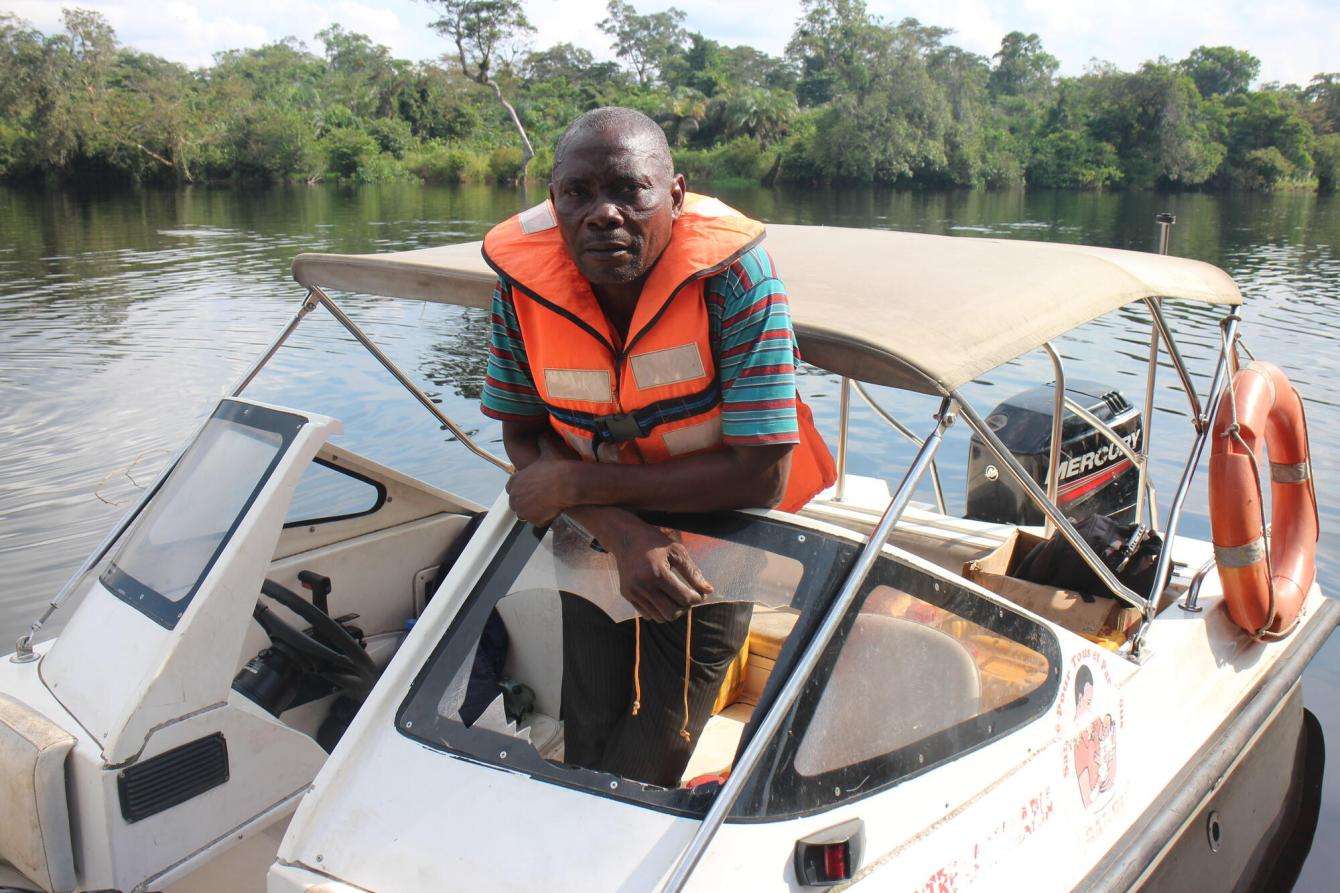
“The medical strategy aims to bring health care as close as possible to affected people and refer severe cases here,” said Dr. Théophile Lukembe, an MSF doctor working at the HGRB. “We supported a home-based care approach, providing treatment while assisting patients in ensuring their isolation to avoid infecting other family members. Only patients with complications were taken to health facilities for appropriate treatment."
Our teams followed up with more than 800 patients at home. Awareness-raising activities were organized in health facilities and the community to prevent the spread of the disease and combat stigmatization, as the disease has highly visible signs on the body, sometimes leading to the rejection of patients by the community.
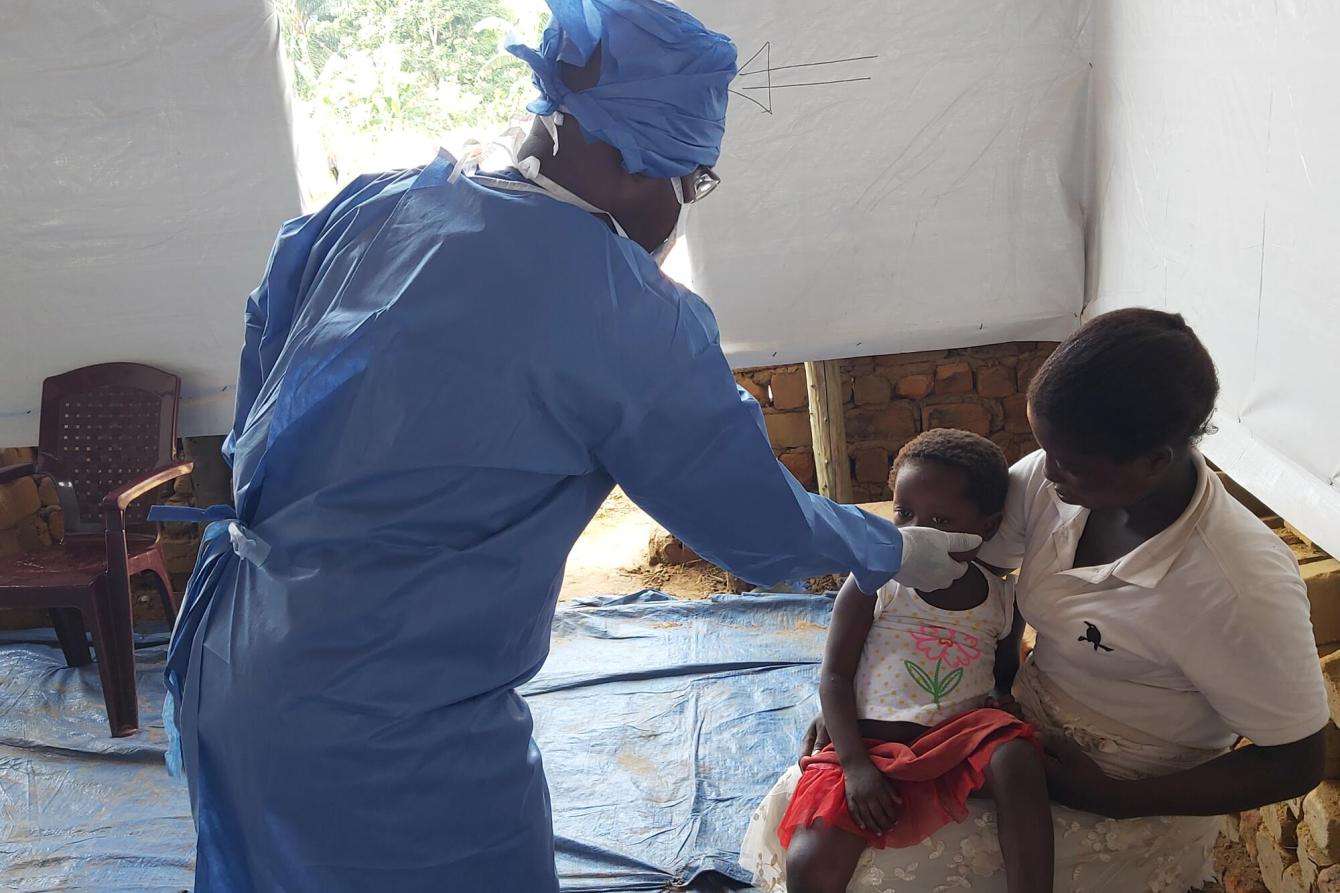
"Logistically, this intervention presented challenges because some health areas could only be reached by canoe, while others required hours on a motorcycle along forest paths—often in pouring rain. This made it even more challenging for the teams and equipment to move around, but that's precisely why MSF is there: to reach people where others cannot," concluded Kibwantiaka.
In addition to this Mpox response, MSF emergency teams also addressed a measles epidemic in Bolomba. They vaccinated 110,723 children against measles and provided treatment for 3,355 others. MSF also treated 827 children suffering from malnutrition and 2,583 with malaria.
